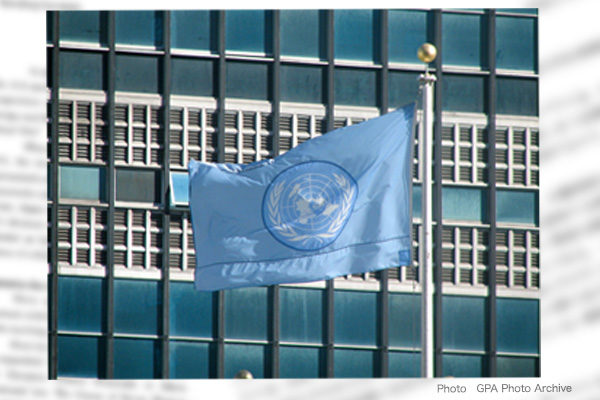On October 29, the United Nations Committee on the Elimination of All Forms of Discrimination against Women said Japan’s Imperial House Act that limits the imperial throne to male-line males is incompatible with the Convention on the Elimination of All Forms of Discrimination against Women (CEDAW) and recommended Japan to amend the law. Yumiko Yamamoto, president of the Nadeshiko Action - Japanese Women for Justice and Peace, a non-government organization that participated in the committee’s deliberations, angrily claimed: “It is a direct reflection of rapport between committee members flavored with liberal feminist ideology and the Japanese left-wingers. There is no need to gratefully accept the recommendation. To say that Japan would fall behind the international community if it failed to accept the recommendation is a shallow opinion that does not understand the reality of the committee.”
Is the Imperial House Act discriminatory against women?
Every several years, the U.N. committee reviews the implementation of the CEDAW by a signatory country and issues recommendations. The 23 committee members are appointed as individual experts, not as representatives of signatory countries. The Japanese government has undergone the review six times (1988, 1994, 2003, 2009, 2016, and 2024). The committee’s recommendations are made through the following process: (1) a CEDAW signatory country’s government submits a report to the committee, (2) the committee asks questions to the government, (3) the government responds, (4) a review meeting is convened. In response to the recommendations, (5) the government provides additional information to the committee. In the (2), (4), and (5) stages, NGOs are allowed to submit written opinions. In addition, NGOs have the opportunity to express their opinions at the review meetings.
The committee took up the Imperial House Act for the first time in 2003 when a Filipino committee member asked whether Japan was considering amending the act to allow Princess Aiko, daughter of Their Majesties the Emperor and Empress, to become emperor. At that time, no recommendation came on the act. In the 2016 review, a recommendation describing the act as discriminatory against women was about to be issued. However, the recommendation was removed after the Japanese government protested that a recommendation’s inclusion of any matter that was not covered in the review process was a breach of procedure.
On March 9, 2020, however, the committee released a list of preliminary questions to the Japanese government, including one that asked the government to explain the details of measures to allow a woman to succeed to the imperial throne while the present rule excludes women from the succession. The committee apparently adopted a written opinion given by a left-wing Japanese NGO, the Japan Civil Liberties Union, which claimed the Imperial House Act as discriminating against women and urged the committee to take up the act. The latest committee recommendation was made along the line of this preliminary question.
Consider withdrawing from the CEDAW
The National Alliance for the Protection of the Imperial Lineage (chaired by Nami Katsuragi), another NGO with a sense of crisis, submitted a written opinion, participated in the committee’s meeting in Geneva to make statements, sent additional written opinions, and handed pamphlets directly to the committee members explaining the imperial family and its tradition of male-line males’ succession. The Japanese government also told the committee: “Both the imperial family system in Japan and royal family systems in other countries have been supported by their respective citizens against the background of their respective histories and traditions. It is not appropriate for the committee to take up Japan’s Imperial House Act.” Nevertheless, the October recommendation described the Imperial House Act as discriminating against women.
Yamamoto proposed that the Japanese government ignore the recommendation and consider withdrawing from the CEDAW. I would like to fully support her proposal. Yamamoto’s account is available at http://nadesiko-action.org/?p=19017 (in Japanese).
Tsutomu Nishioka is a senior fellow and a Planning Committee member at the Japan Institute for National Fundamentals and a specially appointed professor at Reitaku University.


